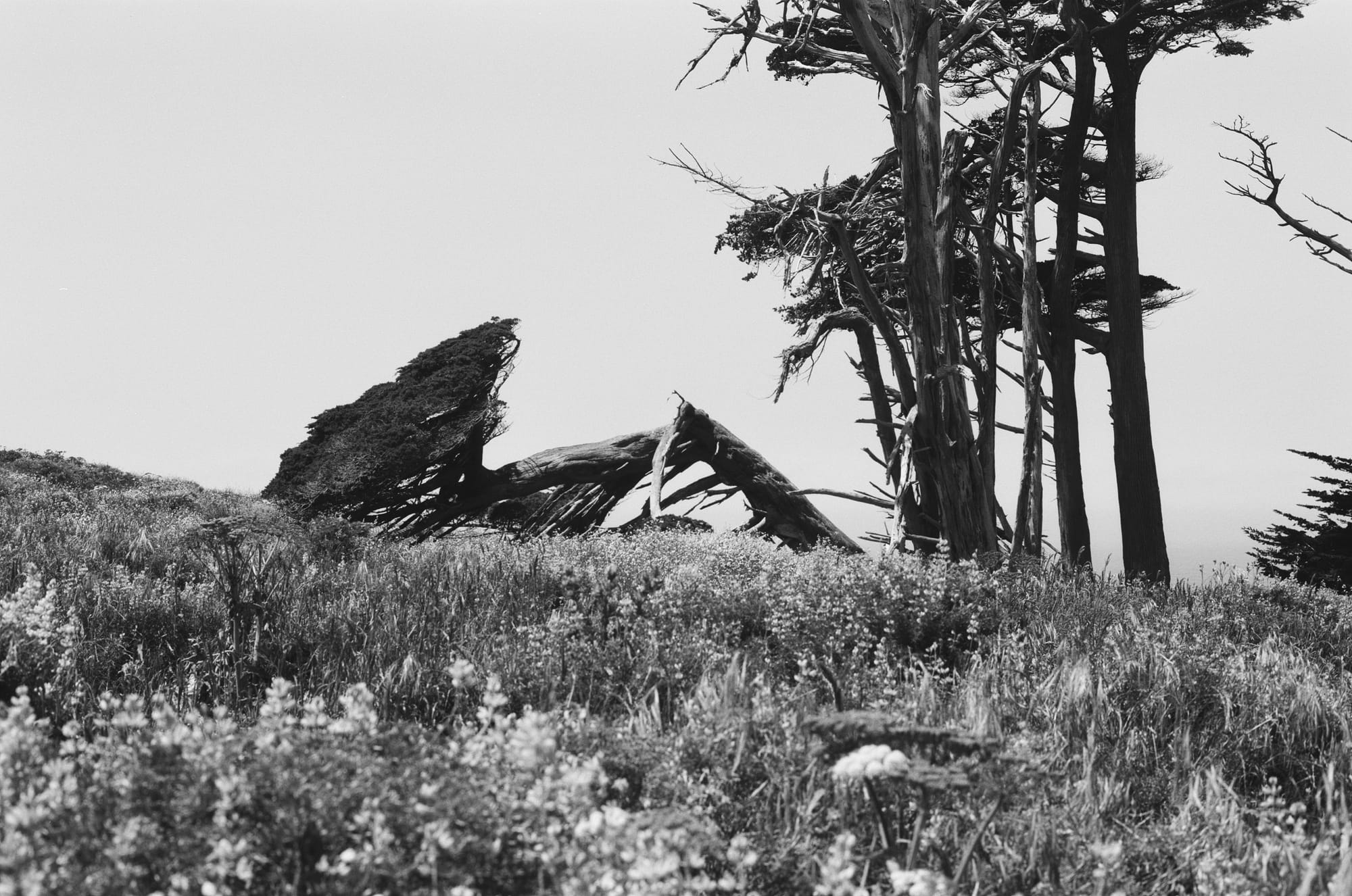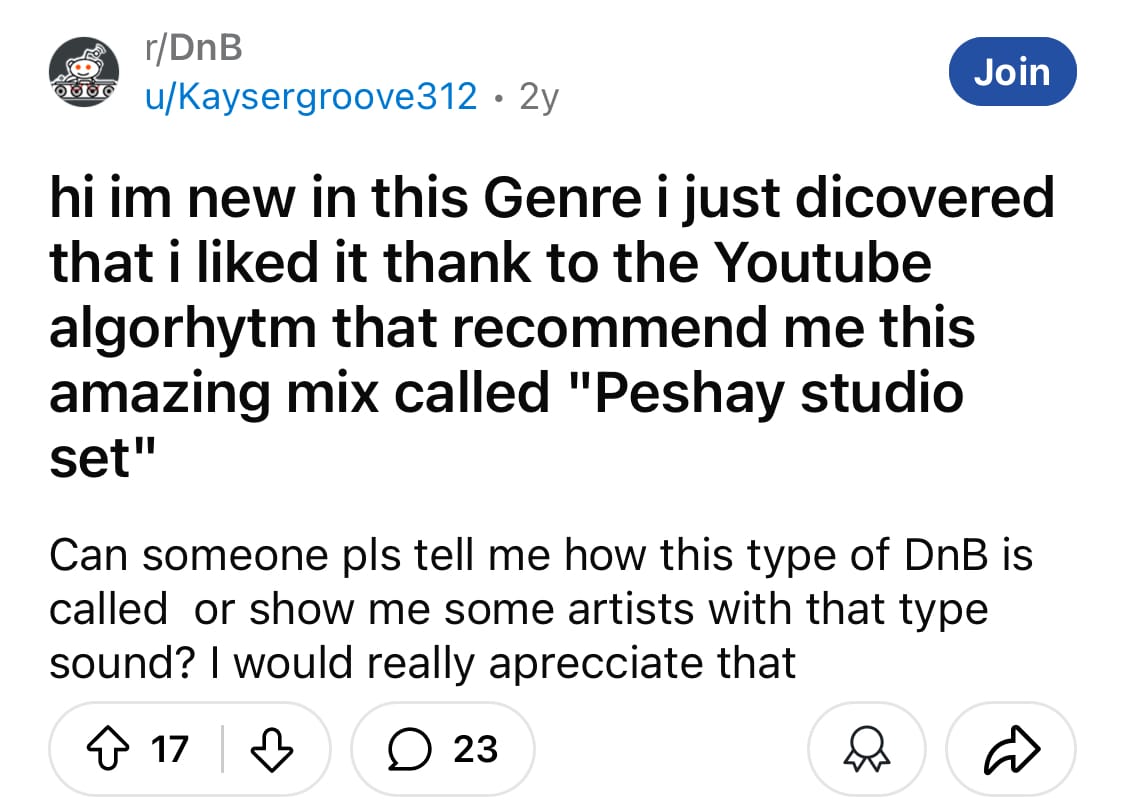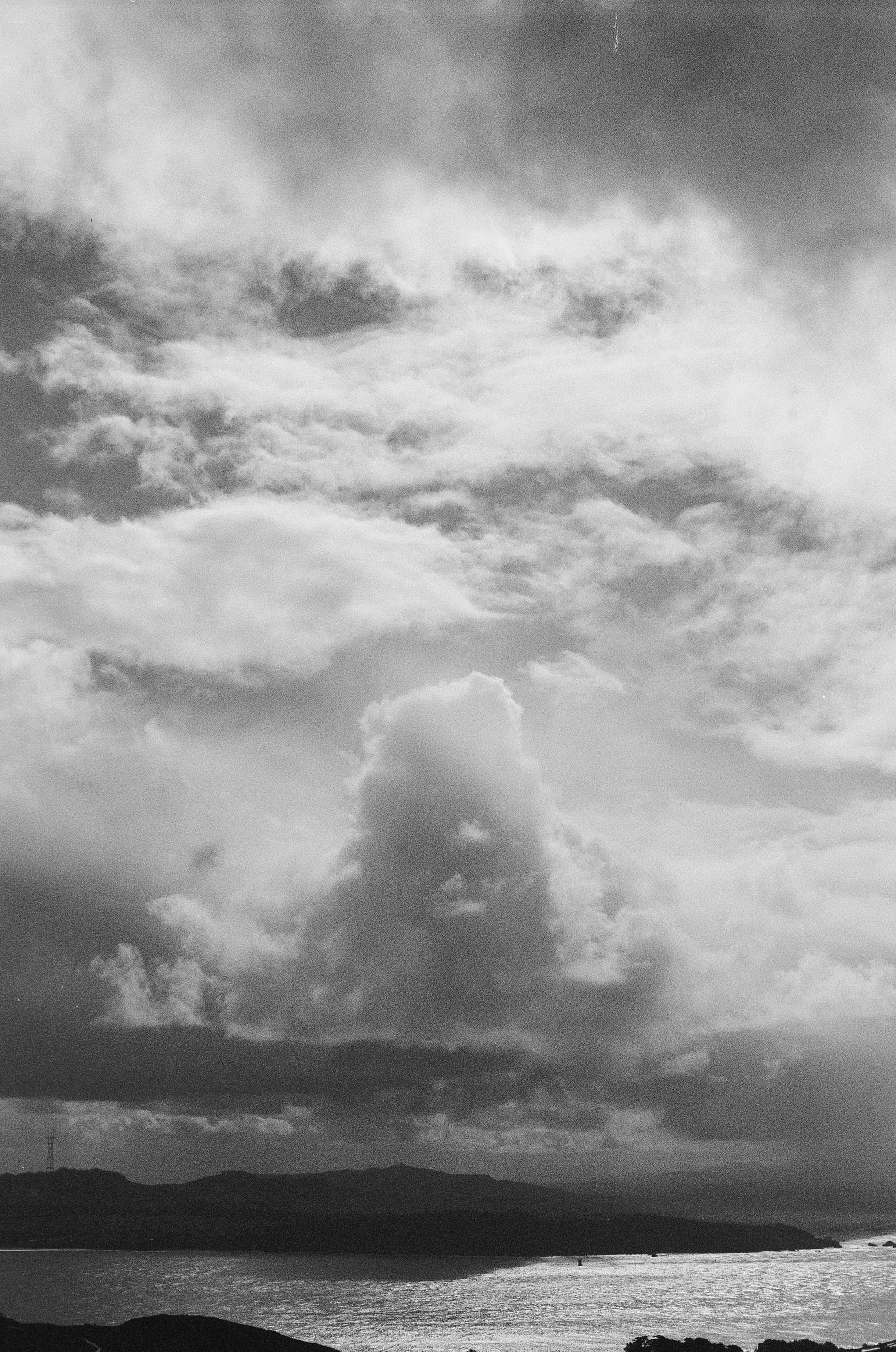Longform: Exiting the Vampire Algorithm
A defense of human-led music discovery in the digital age—with apologies to Mark Fisher.

"Algorithm," according to the Merriam-Webster dictionary, means "a procedure for solving a mathematical problem (as of finding the greatest common divisor) in a finite number of steps that frequently involves repetition of an operation." More broadly, Merriam-Webster says, it means "a step-by-step procedure for solving a problem or accomplishing some end."
Historically speaking—for elder millennials like myself, at least—these definitions held true: for most of my life, I rarely encountered the word "algorithm" outside of math class, which is to say, I hardly encountered it at all. But as you know, beginning about ten or so years ago, the logic of social media began to creep into nearly every aspect of our daily lives, and accordingly, "algorithm" has taken on entirely new meaning.

These days, we're more likely to hear or talk about "the algorithm"—a sneaky bit of metonymic drift in which one particular algorithmic implementation, the recommendation algorithm, has become so influential, so all-encompassing, and so totalizing that it has, in effect, overwritten all other definitions of the word itself.
This should come as no surprise, because today, practically everything we do online involves interacting with recommendation algorithms. They serve us ads when we use search engines; they upsell us when we're shopping; they keep us scrolling on Instagram, Facebook, or TikTok—whose algorithm is so powerful, and so valuable, it's now playing a role in U.S.-China geopolitical horse trading—and they keep us binge-watching, and binge-listening, on YouTube, Netflix, Spotify, Apple Music and beyond.
On the face of it, the overwhelming, resounding success of these recommendation algorithms doesn't seem like a problem. After all, at their core, they're designed to give us more of what we already know we like. How could that possibly be a bad thing?
Dig just a little bit below the surface, however, and the law of unintended consequences rears its ugly head, almost everywhere you look. Perhaps most notoriously, YouTube videos are, in effect, a pipeline toward right-wing radicalization; their algorithm is simultaneously brainwashing your dad and desecrating your children. Instagram's recommendation algorithm, meanwhile, is responsible for a full-blown mental health crisis amongst teenagers, girls especially; internal research by Meta, Instagram's parent company, first documented this effect, but they've worked very hard to keep this research out of the public eye. And in Amazon's case, reams of data are churned ostensibly so shoppers don't forget to buy floss with toothpaste—but it also led to the now-deceased children of at least twelve families purchasing "s••c•de kits": lethal chemicals, plus a gruesome how-to guide for ingesting them, bundled together (without human intervention or oversight) by—what else?—Amazon’s recommendation algorithm.

In music, the algorithm is responsible for a flattening of discovery, a horizontalization of possibility, a one-size-fits-all approach to curation. Particularly within the context of experimental or left-field music, already a niche among niches, the algorithm mints winners through arcane processes whose logic seems totally opaque at best—or pointlessly random at worst. This has led to some bizarre outcomes, including the sudden popularity of Japanese ambient music from the '80s, a phenomenon so real that numerous writers have tried to make sense of it—or the meteoric rise of The Caretaker, alias of former noise trickster Leyland James Kirby, whose jejune sample-based schmaltz-waltz became so inexplicably popular on numerous digital platforms that it spawned its own genre of TikTok memes.
What's to be done about these unexpected outcomes? According to the tech companies, funded by venture capital, who build and deploy these algorithms, the answer is, of course, more data: quantify and digitally cross-reference new dimensions of the self; reify the cyber-matrix; better the results. Superior input equals superior output. Data is destiny: that which cannot be measured does not exist.
This is the philosophy of Silicon Valley in a nutshell. But I suggest, humbly, that a different way is possible. To exit the algorithm—or to fend it off, at least—is to embrace the fact that music is a communal artform, created by humans for humans; that its fundamental purpose is to bring us together; and that its power is fully realized when we share it with one another.

What follows are a series of maxims I've uncovered through the decades I've spent engaging with music community, both on- and offline. They might come across as obvious, particularly if you're older and seasoned. Or they might not at all, if you're younger and digital-native, maybe. It feels vital to state them for the record nonetheless, because right now, as we continue to elevate the building of machines that perform a facsimile of creativity over the work of creative and artistically-minded people themselves, it seems, on some days more than others, that the very act of creativity itself is at risk.
Hyperbole? Probably, yes. Until it's not. And so:
Independence matters.
Yes, "selling out" is a phrase best left in the '90s. No, "the underground" hardly exists at all anymore, or at least looks very different from what it used to. Even still, independent artists—who create work on their own terms, who express their own vision, who do it themselves—are more essential than ever. Authenticity is hard to fake. Accept no substitutes.
Community breeds creativity.
Creative people are drawn to other creative people, and in proximity, they push each other to craft better work. This matters for listeners—to illustrate, when I discover a new artist I enjoy, I explore other artists on labels they've released on, played shows with, or are otherwise connected to. And speaking personally, all of my best work has either been produced in collaboration with, or in dialogue with, other talented creative people.
Pay for what you love.
Of the countless lies we've been sold over the past several decades, culturally, socially, and politically, one of the most pernicious is that anything is "free." Nothing is "free"—not your Instagram account, not the writing in your favorite newspaper, not the music in your Spotify playlist. When you find something you love, or that moves you, or that teaches you something, or that makes a difference in your life—a track, an album, an article, a book, a painting—you should pay for it, and if you can, pay the creator directly. Commerce as radical act? Hardly, but in the meantime, it'll have to do.

History is vital; culture is not created in a vacuum.
All music—all art, actually—is the product of what came before it. "Originality" is a false idol; the dialogue is neverending—and so is the inspiration. To better understand the music you love today, understand its predecessors: the people, the places, and the scenes that it was refracted from. And then, in turn, you'll be able to understand what comes next.
Active participation over passive consumption.
If I had to sum it all up, this is it. Music is a fundamentally participatory medium: the magic happens when we each join in and build together. This doesn't mean you have to make your own music, or put on your own events, or even become a DJ (unless you want to). But you do have to show up, buy a record, join the crowd, celebrate the artist, and tell your friends. The performer is nothing without the audience—and vice versa. Be intentional about it.
But look: it's not all doom and gloom. For example, just days before publishing this essay, my friend Lukas, aka lucra400, a talented producer from Düsseldorf, Germany, reached out to me and said, "Here's a passion project I've been working on—maybe you'll be interested." He built a spreadsheet detailing a massive sprawl of independent music-focused YouTube channels—in other words, he spent months and months on end compiling nearly a thousand different dedicated music lovers, from every corner of the globe, who share, free of charge, every style of music imaginable (and then some). The platform certainly has flaws, but YouTube is a diggers' dream come true, and this spreadsheet is proof positive.

And of course "the algorithm" isn't all bad, either, as evidenced by this rickety-typing person above (no shade!) having their mind shredded to bits by discovering the magic of liquid-cooled '90s drum'n'bass for the very first time—thanks to the Peshay DJ mix from 1996 that YouTube's algorithm is absolutely obsessed with.
Intensely relatable. Beautiful, even.
And so despite it all, the ball stays rolling, as ever. Thanks for reading—see you next week.

